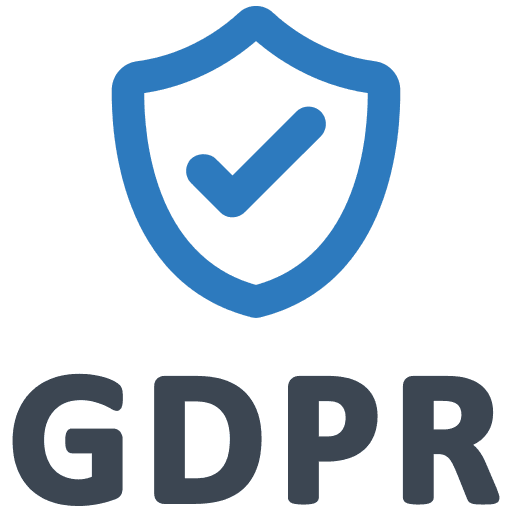
Building a Resume That Gets Past AI Screeners

Mark Chen · 2025-04-13 · 4 min read
In today's competitive job market, your resume often faces an AI gatekeeper before it ever reaches human eyes. Applicant Tracking Systems (ATS) and AI screening tools are now standard in the hiring process, filtering out candidates whose resumes don't meet specific criteria. Understanding how these systems work and optimizing your resume accordingly can significantly increase your chances of landing an interview.
Understanding AI Screening Systems
AI-powered Applicant Tracking Systems (ATS) are sophisticated software tools that scan, categorize, and rank resumes based on specific criteria set by employers. These systems help companies manage high volumes of applications efficiently, but they can also screen out qualified candidates whose resumes aren't properly optimized.
Modern ATS tools go beyond simple keyword matching. They use natural language processing (NLP) and machine learning algorithms to:
Analyze the semantic meaning of your resume content
Evaluate the relevance of your experience to the job description
Assess the quality and organization of information
Score resumes based on multiple factors
"Over 75% of resumes are rejected by ATS before a human ever sees them. Understanding how these systems work isn't optional—it's essential for job seekers in 2025."
Keyword Optimization Strategies
Keywords are the foundation of ATS screening. These systems scan for specific terms that indicate relevant skills, experiences, and qualifications. Here's how to optimize your resume for keyword recognition:
Analyze the Job Description
The job description is your blueprint for keyword optimization. Carefully analyze it to identify:
Required skills and qualifications - Technical skills, soft skills, certifications
Industry-specific terminology - Jargon and acronyms relevant to your field
Action verbs - Words that describe responsibilities and achievements
Use Natural Language
Modern AI systems can detect keyword stuffing. Instead of cramming your resume with keywords, incorporate them naturally into compelling descriptions of your experience and achievements.
Include Variations
AI systems are increasingly sophisticated in recognizing semantic relationships, but it's still wise to include variations of key terms:
Use both spelled-out terms and acronyms (e.g., "Search Engine Optimization (SEO)")
Include synonyms for important skills
Consider both technical and non-technical descriptions of your abilities
Keyword Optimization Example
Ineffective:
"Responsible for managing projects and leading teams."
Effective:
"Led cross-functional project teams using Agile methodology, delivering 5 enterprise software implementations that increased client operational efficiency by 35%."Formatting Best Practices
Even the most qualified candidate can be rejected if their resume format confuses AI systems. Follow these formatting guidelines to ensure your resume is ATS-friendly:
1. Choose Simple, Standard Formats
Use common section headings (e.g., "Experience," "Education," "Skills")
Stick to reverse chronological order for work history
Avoid tables, columns, headers/footers, and text boxes
Use standard fonts like Arial, Calibri, or Times New Roman
2. File Format Matters
Unless otherwise specified in the application instructions, submit your resume as a .docx file. While PDFs maintain formatting, some older ATS systems can't properly parse them.
3. Clear Section Headings
Make your section headings clear and conventional. AI systems use these to categorize information. Avoid creative headings like "Where I've Made an Impact" instead of "Work Experience."
"The most qualified candidates can be rejected simply because their resume format is incompatible with AI screening systems. Keep it simple and structured."
Common Mistakes to Avoid
Knowing what trips up AI screening systems can help you avoid common pitfalls:
1. Graphic Elements
Avoid images, icons, and decorative elements. AI systems can't interpret them, and they may disrupt the parsing process.
2. Non-Standard Sections
Unconventional section headings or resume structures may confuse AI systems and cause them to misinterpret or miss your information.
3. Keyword Stuffing
Modern AI can detect when you're artificially cramming keywords. This practice can get your resume flagged or downgraded.
4. Inconsistent Information
Discrepancies between your resume and LinkedIn profile or application form can raise red flags in integrated AI systems.
Testing Your Resume's ATS Compatibility
Before submitting your application, test how well your resume performs with AI screening tools:
Use online ATS simulator tools to check compatibility
Compare your resume to the job description using keyword analysis tools
Have your resume reviewed by a professional who specializes in ATS optimization
Conclusion
Creating an ATS-friendly resume doesn't mean sacrificing quality or personality. By understanding how AI screening systems work and following these optimization strategies, you can craft a resume that appeals to both algorithms and human recruiters.
Remember that the ultimate goal is to get your resume past the AI gatekeeper and into human hands. Once you've optimized for ATS, focus on making your content compelling and achievement-oriented to impress the hiring manager who eventually reviews your application.
In today's competitive job market, this two-pronged approach—optimizing for both AI and human readers—is the key to landing more interviews and advancing your career.

About Mark Chen
Mark Chen is a creative recruiter and content writer who explores the intersection of technology and human potential. He enjoys sharing insights on career growth, innovative hiring practices, and how AI can support , not replace human judgment in recruitment.
Table of Contents

Transforming recruitment with AI-powered intelligence, helping companies hire smarter and candidates land better jobs.
© 2025 Jobaify.io. All rights reserved.


